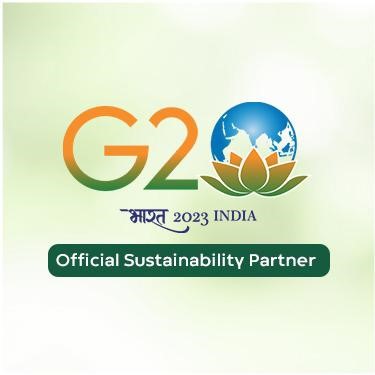India’s ban on single-use plastics was a pivotal move 3 years ago as a vision for a better, cleaner, plastic free country. Three years later, the ripple effects are undeniable. From retail giants to small businesses, everyone has had to adapt. But why is this change crucial for your business in 2025?
What Did The Ban Say?
India’s ban on single-use plastics (SUP), enforced from July 1, 2022, prohibits items like plastic cutlery, straws, polystyrene decorations, and thin plastic bags under the Plastic Waste Management Rules, 2016. It also restricts the manufacture, import, sale, and distribution of these items, with strict penalties and large-scale enforcement drives in place.
To ensure a smooth transition, the government is pushing for biodegradable packaging and supporting MSMEs in adopting alternatives to plastic bags for their operations.
What were the repercussions?
The ban was welcomed by the country and its people who were struggling with the plastic problem, a nationwide enforcement drive led to massive crackdowns, penalties worth ₹5.8 crore, and the seizure of over 775,000 kg of banned plastics. Although 3 years down the line India is still transitioning, compostable bags and other sustainable alternatives are increasingly replacing single-use plastic bags in various industries.
A Game Changer for Businesses
Initially, industries like food & beverage, retail, and consumer goods struggled to find cost-effective alternatives. Large corporations adapted quickly, investing in sustainable & biodegradable packaging and supply chain redesign, while SMEs faced financial and compliance challenges.
By mid-2023, domestic production of alternatives surged, reducing costs and making compliance easier. Industry consortiums played a crucial role in knowledge-sharing, accelerating innovation in compostable bags and other biodegradable products.
The Business Landscape in 2025
As of now, sustainability is no longer just about compliance, it’s a competitive edge. Consumer preference has shifted, with a majority of Indian shoppers willing to pay more for eco-friendly alternatives to plastic bags & packaging that has purpose. Key industry transformations include:
Retail: Reusable bags, deposit systems, and customer incentives for sustainable choices.
Food Delivery: Widespread use of biodegradable packaging made from sugarcane bagasse, palm leaves or alternatives.
E-commerce: Minimalist packaging and standardized reusable delivery containers.
Hospitality: Elimination of single-use plastic bags & toiletries, replaced by refillable dispensers.
Circular Economy: Growth in waste collection and recycling industries, boosting employment and sustainability.
What to Expect in the Rest of 2025
Stronger Enforcement: Government crackdowns on non-compliance and false eco-friendly claims.
Stricter EPR Regulations: Businesses must track, report, and take full responsibility for plastic waste.
Smarter Consumers: Greenwashing is easily spotted, pushing brands to make genuine environmental commitments and to genuinely adopt biodegradable products.
Sustainability Innovation Boom: Investment in next-gen compostable bags and biodegradable plastic bags will lower costs and improve efficiency.
Government Incentives: Preferential procurement policies for eco-conscious businesses.
Global Trade Impact: Indian exporters who comply with domestic sustainability laws will gain a competitive edge internationally.
Tech-Driven Sustainability: Blockchain transparency might be introduced and AI-optimized resource management will become mainstream.
As the ban on single-use plastic shifts from transition to full-scale enforcement, businesses that embrace sustainability will thrive. The key to success? Adapt, innovate, and stay ahead of the curve!
link of official announcement from the government— https://pib.gov.in/PressReleasePage.aspx?PRID=1882855





